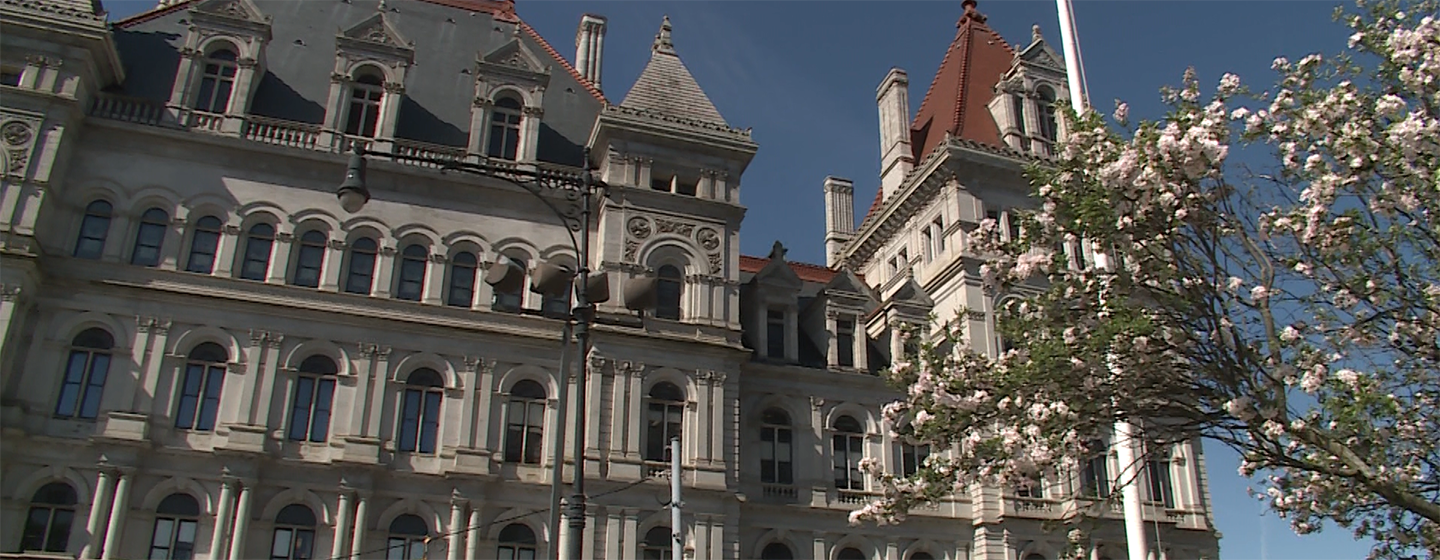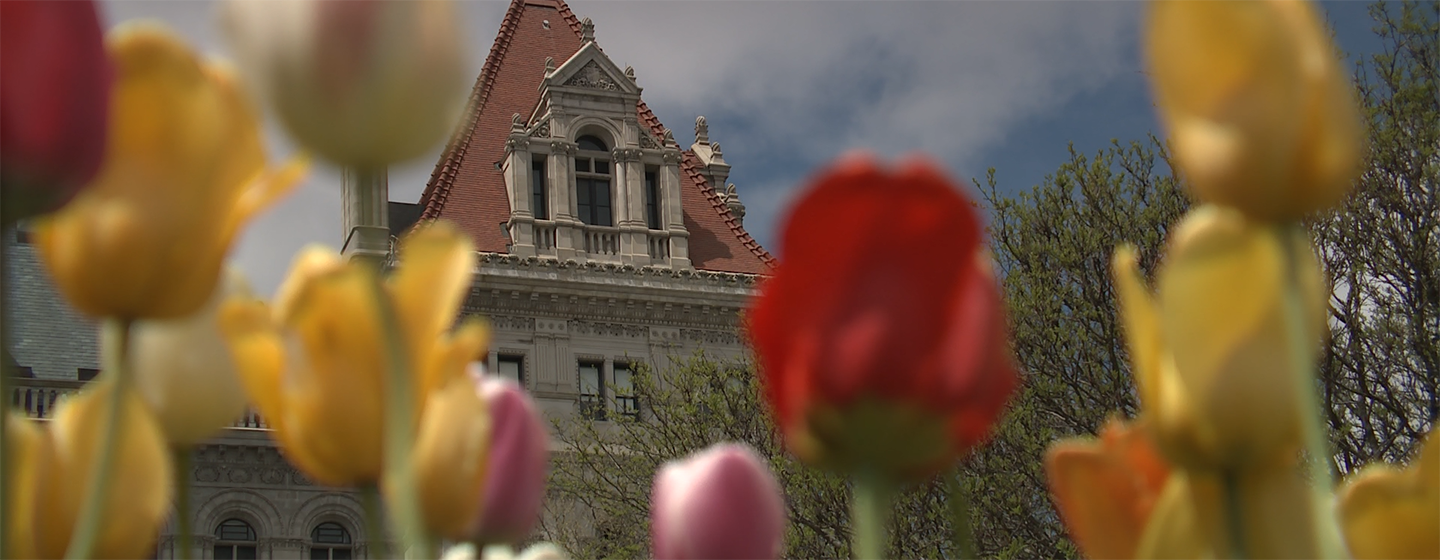Climate Change Advocates Hold Out Hope for Bills As Session Winds Down

Climate Change Advocates Hold Out Hope for Bills As Session Winds Down
With the legislative session set to end later this week, advocates are pressing for bills that they say will help reduce climate change over the next decade. But as Karen DeWitt reports, there’s also stiff opposition to the measures from the industries that would be affected.
One of the bills would cut the amount of plastic packaging, with a 50% reduction phased in over 12 years. It would also ban a practice favored by the plastics industry to burn plastic materials that can’t be recycled because the recycling industry is now over capacity.
The sponsors of the measure are the chairs of Senate and Assembly environmental committees, Peter Harckham and Deborah Glick. Glick says the bill has been amended in recent days to win more votes. She says the new version would share more of the costs of plastic packaging reduction between government and taxpayers, and plastics producers.
“We believe in shared responsibility, this should not be just the responsibility of the municipalities and the taxpayers. This should be something where our friends in industry take some responsibility for the waste that they generate in our homes,” Glick said. “I don't think this is a radical notion.”
But the American Chemistry Council, major plastics manufacturers, and the state’s Business Council remain opposed.
In a letter signed by 65 groups, they say the amendments were made without input from stakeholders, and that the changes would incorrectly classify too many plastics as toxic substances.
They also oppose the banning of a method they call “advanced recycling,” and they differ with the environmentalists’ contention that it involves the burning of plastics. They say the process is not technically incineration, because it does not use oxygen as a fuel or accelerant.
Another measure promoted by environmental advocates and opposed by industry is called NY Heat. It would cap energy bills at 6% of income for low- and middle-income families, saving an estimated $75 per utility customer.
And another bill would create a new Superfund to repair climate change caused by gasoline and other fossil fuel emissions. It would be financed by the oil industry.
Blair Horner is with the New York Public Interest Research Group, which backs all three measures.
“There are huge issues still facing the state with regard to climate change, there are staggering, staggering costs that New Yorkers are going to face,” Horner said. “And right now, they're going to have to pay out of their own tax bills.”
Horner says oil companies should “pick up their fair share” of the tab since, he says, they caused the problem.
“We think they should be on the hook,” he said.
In part, the fate of the environmental bills, as well as many other measures unresolved in the final days of the session, comes down to timing.
For any major piece of legislation, the majority parties in each house -- in this case the Democrats -- need to discuss the issue in closed-door party conferences. In the conferences, typically, every lawmaker who wants to speak on a matter gets the chance to have their say.
And there are only so many hours left to discuss items.
The Senate sponsor of the plastic packaging reduction act, Peter Harckham, says he knows that his bill is competing for attention with many other measures as the days wind down.
“They have a lot of mouths to feed right now,” Harckham said. “So we're working as hard as we can.”
Assembly Speaker Carl Heastie has said that while the session might extend a couple of days into the weekend, he does not anticipate lawmakers returning to the Capitol after this week.
Related

Activists Push State Lawmakers To Pass New York Heat Act
Supporters of the bill say it would save middle and low-income families an average of $75 per month by capping energy bills at six percent of their income.


